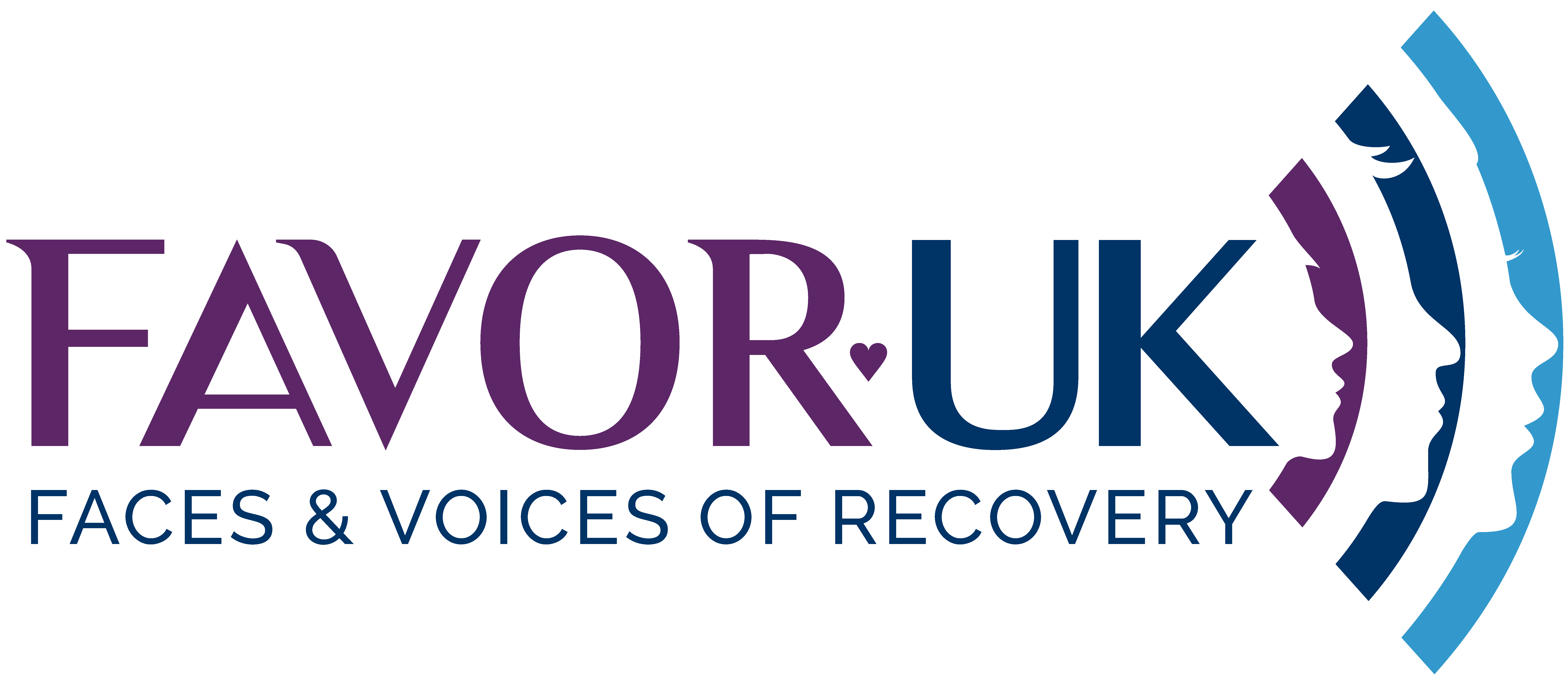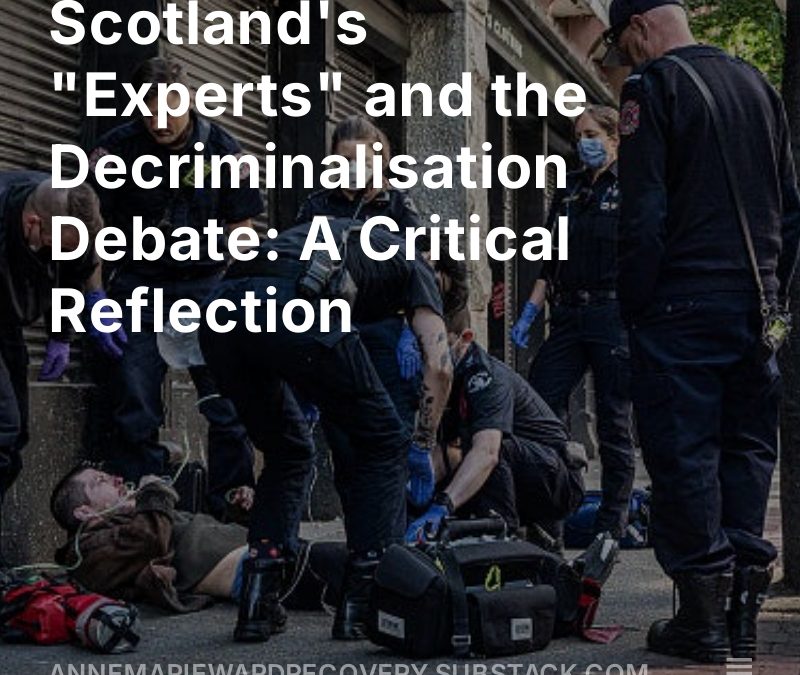In any profession, staying informed about global developments is essential. Yet, in Scotland, so-called experts are pushing for drug decriminalisation with alarming zeal, despite questionable evidence backing their stance—a narrative that some media outlets seem eager to support (Hedrich, 2004). This action is driven by a deliberate political agenda: to deflect responsibility for Scotland’s drug deaths onto Westminster, thereby fueling the ongoing debate about Scottish independence.
I have some sympathy with these experts as over the years, I have supported certain aspects of what I thought was evidence-based treatment. However, as more information has come to light, I have reevaluated my position, growing more discerning and cautious. Unfortunately, the drug policy and even research community is compromised by both ideological and financial interests (Bewley-Taylor, D.R., & Jelsma, M. (2012 & Ornstein, C., & Thomas, K. (2017)
Drug consumption rooms (DCRs) are a prime example. For many years, I bought into the supposed evidence supporting DCRs. But as the debate around them intensified, I delved deeper and realised that the evidence base is far from robust. The majority of support for DCRs is anecdotal or based on self-reported data, which is notoriously unreliable in rigorous scientific evaluation (Potier et al., 2014).
The Failure of Drug Decriminalisation: A Critical Analysis
Drug decriminalisation has been championed by some as a progressive solution to the global drug crisis, with proponents arguing that it reduces crime, mitigates public health issues, and provides a more humane compassionate approach to drug policy. However, a closer examination of the evidence reveals that decriminalisation has failed to deliver on these promises. Instead, it has exacerbated public health problems, increased drug dependency, and sent the wrong message about drug use. Drug decriminalisation has been a misguided policy, with negative consequences that far outweigh any purported benefits.
Theoretical Failures of Decriminalisation
At the core of the argument for decriminalisation is the belief that removing criminal penalties for drug use will lead to safer, more controlled substance use and reduce the societal costs associated with drug-related crime. However, this theory fails to account for a grossly inadequate treatment system, the complex nature of addiction and the social dynamics that drive drug use. Kalant (2016) argues that addiction is not merely a matter of individual choice but is deeply rooted in biological, psychological, and social factors. By decriminalising drugs, societies risk normalising drug use, which can increase the prevalence of addiction and undermine efforts to prevent drug-related harm.
Weisheit and White (2009) highlight the particular dangers associated with highly addictive substances like methamphetamine, (or cocaine of heroin) where even short-term use can lead to severe physical and psychological dependence. Decriminalisation does not address the root causes of addiction or provide adequate support for those struggling with dependency. Instead, it offers a superficial solution that ignores the long-term damage that drugs can inflict on individuals and communities.
Empirical Evidence of Failure
Empirical evidence from countries that have implemented decriminalisation policies further highlights the failure of this approach. Portugal is often cited as a success story for decriminalisation, but closer scrutiny reveals a more complex picture. While some metrics, such as HIV transmission rates, have improved, other indicators suggest that decriminalisation has not been as effective as claimed. Murray (2021) argues that drug use has increased, particularly among young people, and that the burden on public health services has grown as a result of higher levels of drug dependency. There are many many studies that show decriminalisation has been a disaster in Portugal. (Arapoglou, E. (n.d.) Portugal Drug Policy 2021)
Similarly, Sabet (2021) points out that decriminalisation in the United States, particularly with regard to marijuana, has led to increased use and normalisation of the drug, with significant public health consequences. States that have decriminalised or legalised marijuana have seen a rise in drug-related traffic accidents, hospitalisations, and use among adolescents. These outcomes suggest that rather than reducing harm, decriminalisation is contributing to a new set of public health challenges.
The Role of Pharmaceutical Interests and Biased Research
The involvement of pharmaceutical companies in funding research and promoting decriminalisation raises further concerns about the integrity of the evidence supporting this policy. Bekelman, Li, and Gross (2003) highlight the potential for bias when studies are funded by entities that stand to benefit from the outcomes. In the context of drug policy, this means that the dangers of drug use are downplayed, while the benefits of decriminalisation are exaggerated.
Lundh et al. (2017) argue that industry-sponsored research often yields more favorable outcomes for the products or policies being promoted. This raises serious questions about the reliability of studies that support decriminalisation, particularly when they rely heavily on self-reported data, which is prone to bias and inaccuracies. As Ioannidis (2005) famously noted, a significant proportion of published research findings are false, especially when financial conflicts of interest are involved.
Social and Ethical Implications
Beyond the empirical and theoretical failures, decriminalisation also carries significant social and ethical risks. By removing criminal penalties for drug use, societies are sending the message that drug use is acceptable or even safe. This undermines prevention efforts of which there are very little and contribute to higher rates of drug initiation, particularly among vulnerable populations such as adolescents.
French (2021) argues that decriminalisation is not an act of compassion, but rather a form of surrender in the face of a growing drug crisis. Instead of helping individuals achieve recovery and freedom from dependency, decriminalisation allows the problem to persist, if not worsen. It represents a failure of leadership and a lack of commitment to the well-being of the most vulnerable members of society.
Conclusion
In conclusion, drug decriminalisation has failed to deliver on its promises. While it may offer short-term reductions in drug-related arrests and incarceration, it does so at the cost of increased drug use, dependency, and public health challenges. The theoretical underpinnings of decriminalisation are flawed, and the empirical evidence, when critically examined, does not support the notion that decriminalisation is an effective or humane policy. The potential for bias in research funded by pharmaceutical interests further undermines the credibility of the evidence in favour of decriminalisation. As such, it is clear that a more balanced approach, one that emphasises prevention, treatment, and enforcement, is needed to address the complex issues surrounding drug use and addiction.
All of this is particularly heartbreaking when we consider the human toll—more and more lives are being lost each year, and Scotland’s drug deaths continue to rise. Despite the rhetoric and political maneuvering, the reality on the ground is stark: people are dying, and the current approach is failing them. It is imperative that we shift our focus from ideologically driven policies to those that are truly evidence-based, prioritising the health and well-being of individuals over political agendas.
The time for change is now, before even more lives are lost.
References:
Hedrich, D. (2004) European report on drug consumption rooms. Lisbon: European Monitoring Centre for Drugs and Drug Addiction (EMCDDA).
Bewley-Taylor, D.R., & Jelsma, M. (2012). The UN drug control conventions: The limits of latitude. International Drug Policy Consortium Briefing Paper.
Available at: https://www.tni.org/files/download/dlr16.pdf
Ornstein, C., & Thomas, K. (2017). The Champion of Opioid Makers: A Secretive Group’s Quiet Campaign to Influence U.S. Drug Policy. ProPublica.
Available at: https://www.propublica.org/article/the-champion-of-opioid-makers
Potier, C., Laprévote, V., Dubois-Arber, F., Cottencin, O., and Rolland, B. (2014) ‘Supervised injection services: What has been demonstrated? A systematic literature review’, Drug and Alcohol Dependence, 145, pp. 48-68.
Bekelman, J.E., Li, Y., and Gross, C.P. (2003) ‘Scope and impact of financial conflicts of interest in biomedical research: a systematic review’, JAMA, 289(4), pp. 454-465.
French, D.A. (2021) ‘Decriminalization Isn’t Compassion; It’s Surrender’, National Review. Available at: https://www.nationalreview.com/2021/05/decriminalization-isnt-compassion-its-surrender/ (Accessed: 25 August 2024).
Ioannidis, J.P.A. (2005) ‘Why most published research findings are false’, PLoS Medicine, 2(8), e124.
Kalant, H. (2016) ‘What neurobiology cannot tell us about addiction’, Addiction, 115(8), pp. 1347-1353.
Kimber, J., Dolan, K., van Beek, I., Hedrich, D., and Zurhold, H. (2003) ‘Drug consumption facilities: An update since 2000’, Drug and Alcohol Review, 22(2), pp. 227-233.
Lundh, A., Lexchin, J., Mintzes, B., Schroll, J.B., and Bero, L. (2017) ‘Industry sponsorship and research outcome’, Cochrane Database of Systematic Reviews, (2).
Murray, D. (2021) ‘Drug Decriminalisation Has Been a Disaster in Portugal – We Must Not Make the Same Mistake’, The Daily Telegraph. Available at: https://www.telegraph.co.uk/news/2021/10/29/drug-decriminalisation-has-disaster-portugal-must-not-make/ (Accessed: 25 August 2024).
Arapoglou, E. (n.d.) Portugal Drug Policy – A Review of the Evidence: Portugal Drug Policy Highlights Many Problems that Make it Unsuitable for Australia. Dalgarno Research Report (DRR), Dalgarno Institute.
Sabet, K.A. (2021) Smokescreen: What the Marijuana Industry Doesn’t Want You to Know. New York: Beaufort Books.
Weisheit, R.A., and White, W.L. (2009) Methamphetamine: Its History, Pharmacology, and Treatment. Center City, MN: Hazelden Publishing.
First published here https://open.substack.com/pub/annemariewardrecovery/p/scotlands-experts-and-the-decriminalisation?r=t9p3h&utm_campaign=post&utm_medium=web

